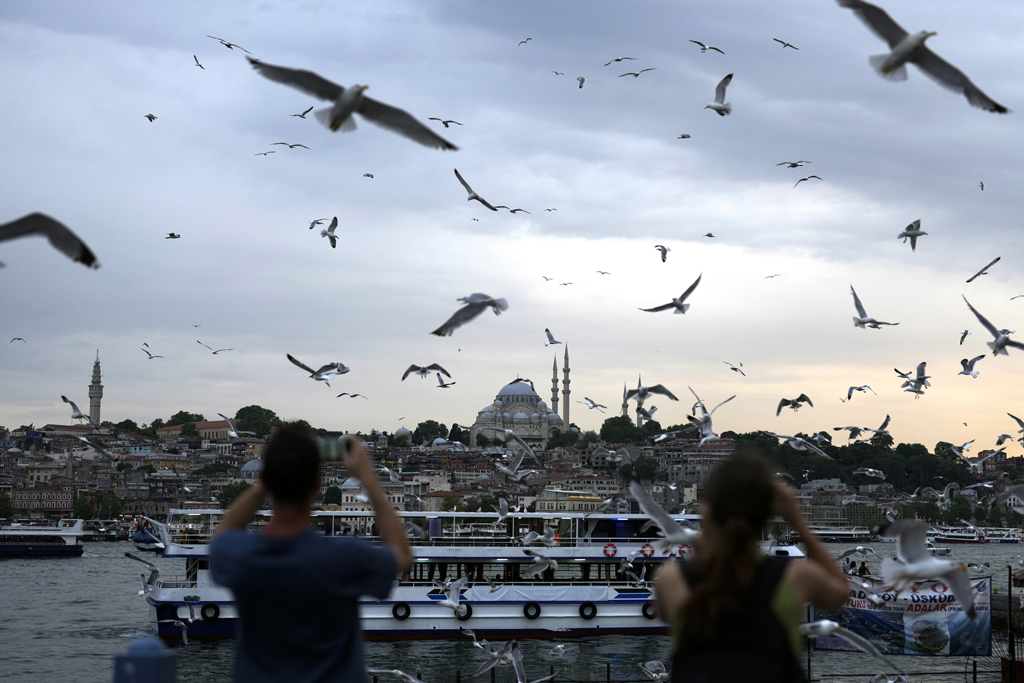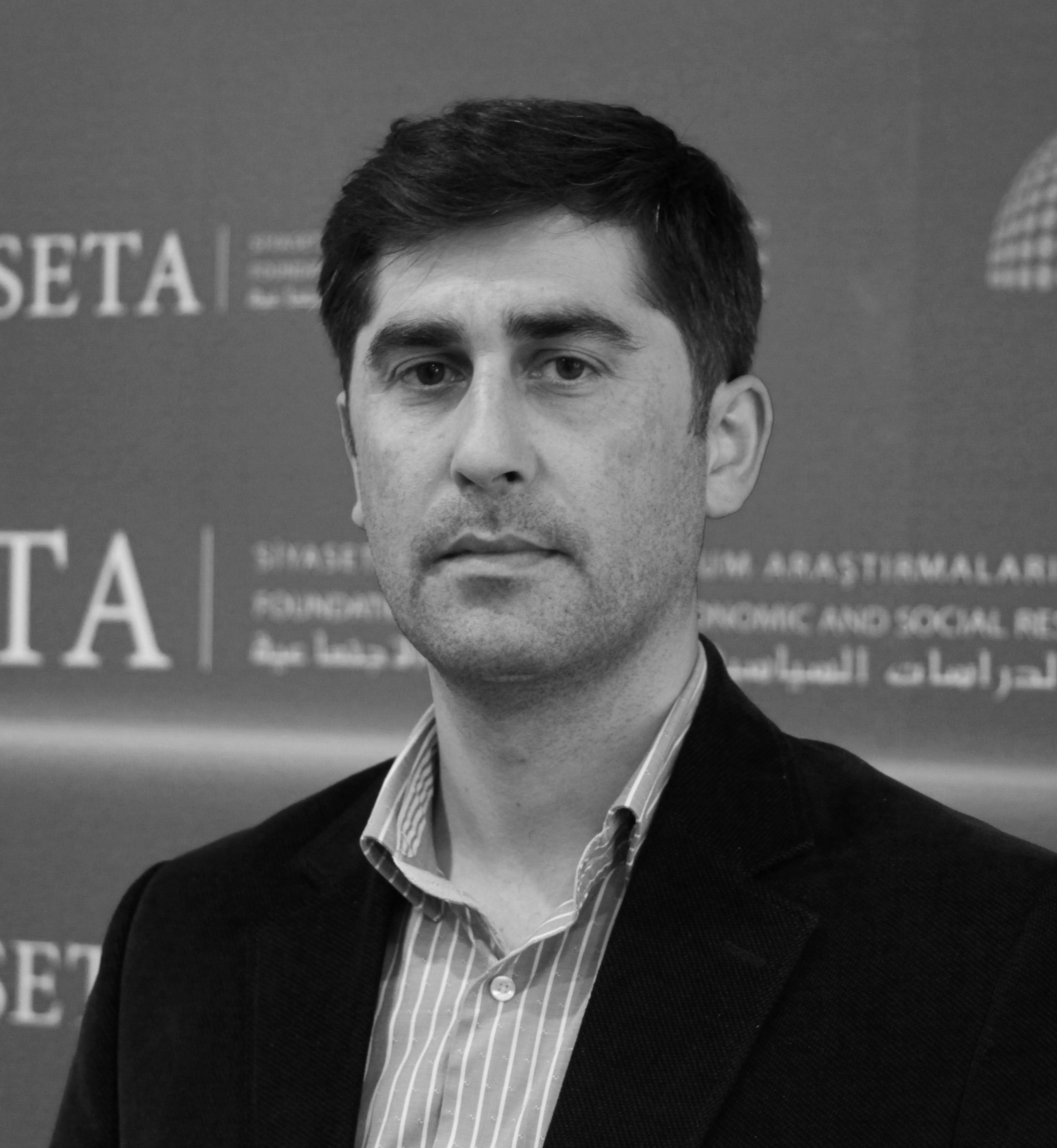President Recep Tayyip Erdoğan’s address at the 78th United Nations General Assembly provided a profound insight into the global and regional priorities that guide Turkish foreign policy. In an era marked by escalating global and regional power rivalries, growing global uncertainties and a changing regional geopolitical landscape prevalent with security challenges, Türkiye faces the imperative of redefining its foreign policy.
Since his election victory in May 2023, President Erdoğan has embarked on a foreign policy course that offers clear indications of the trajectory of this new era. At the core of Erdoğan’s foreign policy vision lies the consolidation of Türkiye’s strategic autonomy, a pursuit aligned with the grand strategy objective known as the “
Axis of Türkiye.” This ambitious goal seeks to elevate Türkiye into a global player within an evolving international system. In essence, it aspires to transform Türkiye into a potent economic, military and diplomatic actor, establishing it as a formidable contender in the global power arena.
President Erdoğan has to achieve two pivotal foreign policy objectives simultaneously. On the one hand, he must navigate nuanced diplomacy to protect Türkiye’s core interests amid a competitive and aggressive geopolitical milieu in its regional context. On the other hand, he must vigilantly assess global and regional shifts, devising innovative strategies to position Türkiye effectively within this changing strategic landscape. As Türkiye enters its second century, accomplishing these dual objectives symbolizes a significant new strategic aim. It is also a ramification of the contemporary strategic discourse to transform the Turkish state identity in the new century of Türkiye.
This strategic vision demands President Erdoğan’s commitment to effecting a structural transformation within Türkiye and constructing a regional and global role consistent with this transformation over the next five years of his presidency. While this structural shift necessitates a clear vision of the future of Türkiye, developing a coherent foreign policy to shape its regional and global role is equally imperative.
The new constitution and new economy
In the context of history, Türkiye has usually responded to pivotal global changes with comprehensive internal transformations. Presently, the initiative for a new constitution emerges as a pivotal avenue for enabling Türkiye’s structural evolution. The current constitution, drafted by military officials following the 1980 military coup, is outdated and exacerbates contemporary issues. Given the strong social and political demand for
a new constitution and Türkiye’s transition from a parliamentary to a presidential system, a new constitution is perceived as a strategic necessity. President Erdoğan views the new constitution as not only a means to deepen democracy but also as a visionary document aligning with global shifts: As President Erdoğan mentioned in his speech last week, “what we need is a constitutional text whose wording, spirit and volume are in line with our nation’s view of the world and life, and our country’s accumulation and goals.”
Parallel to constitutional reforms, Türkiye’s re-adoption of orthodox economic policies is intertwined with its foreign policy. The global economic stagnation in the post-pandemic world, vulnerabilities stemming from the Ukraine conflict, intensified global economic and technological competition, and Türkiye’s ongoing economic challenges mandate the formulation of a new economic strategy. Türkiye must mitigate inflationary pressures and construct a competitive economic model that integrates with the global economy and bolsters trade volume. This objective necessitates the simultaneous management of geopolitical and geo-economic dynamics, as exemplified by the Medium-Term Economic Program recently announced by the government.
Geopolitical context
A new constitution and a
robust economy will establish a stable political foundation, enabling
Turkish foreign policy to engage with its geopolitical environment more effectively. President Erdoğan’s recent speech at the U.N. General Assembly underscored the profound transformation unfolding within the global system.
This transformation is characterized by a resurgence of great power competition, which, although prominently between the U.S. and China, reverberates throughout the international arena. It compels all actors to reevaluate their positions and adapt to shifting alliances, exemplified by developments such as AUKUS (Australia, the United Kingdom and the United States), the Quadrilateral Security Dialogue (QUAD), BRICS (Brazil, Russia, India, China and South Africa), and the India-Middle East-Europe Corridor (IMEC). In this volatile global landscape, Türkiye must diversify its foreign policy beyond reliance on its geopolitical positioning and incorporate regional diversity.
Foremost among Türkiye’s geopolitical challenges is its location within an aggressive and competitive environment. The ongoing Ukraine conflict directly impacts Turkish-Russian relations and reshapes Türkiye’s ties with Europe, the West and NATO. Europe’s efforts to consolidate its unity within NATO in response to the Russian threat prompted a reevaluation of Türkiye’s relationship with Europe.
Concurrently, the fragile situations in neighboring countries like Syria and Iraq compel Türkiye to prioritize security policies. As the Middle East undergoes transformation amid great power competition, Türkiye is revising its relations with the entire regional actors. Notably, Türkiye’s acceleration of the Development Road project in response to the IMEC initiative announced at the G-20 summit exemplifies the simultaneous management of geopolitical and geoeconomics dynamics.
Foreign policy is inherently a realm of mutual interaction, not unilateral action. It demands a relational strategy and involves multiple stakeholders. President Erdoğan’s
U.N. summit address underscores that Turkish foreign policy is crafted with a holistic perspective, poised for a global orientation that accounts for the intricate interplay of factors within our ever-evolving world.
[Daily Sabah, September 22, 2023]







